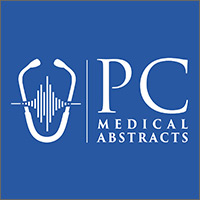User login
The video associated with this article is no longer available on this site. Please view all of our videos on the MDedge YouTube channel
Hay, A.D., et al, JAMA 318(8):721, August 22, 2017
BACKGROUND: Although symptoms and underlying bronchial hyperresponsiveness are similar in asthma and acute lower respiratory tract infection, guidelines do not include recommendations, and evidence is scarce, regarding the use of corticosteroids for acute lower respiratory infections.
METHODS: In this multinational trial, 401 patients (mean age, 47.4 years) without a history of asthma who presented to primary care with suspected acute lower respiratory tract infection were randomized to a five-day course of oral prednisolone (40mg daily) or placebo. Study participants were followed for 28 days for the primary outcomes of the duration of moderately bad or worse cough, and mean symptom severity score on days two to four (score range 0 to 6, for the main symptoms of cough, phlegm production, shortness of breath, sleep disturbance, feeling unwell and activity disturbance).
RESULTS: In both groups, the median duration of moderately bad or worse cough was five days (hazard ratio 1.11, p=NS). On days two to four, the mean symptom severity score was 1.99 points in the prednisolone group vs. 2.16 points in placebo-treated controls (adjusted difference 0.20 point, p=0.05). Absence of a statistically significant difference between the groups persisted in sensitivity and subgroup analyses. Both groups were similar in terms of symptom duration, antibiotic use, patient satisfaction and the nature of adverse events (no serious adverse events occurred).
CONCLUSIONS: This study does not support the use of oral corticosteroids in primary care patients without asthma who present with acute lower respiratory tract infection. 35 references ([email protected] – no reprints)
The video associated with this article is no longer available on this site. Please view all of our videos on the MDedge YouTube channel
Hay, A.D., et al, JAMA 318(8):721, August 22, 2017
BACKGROUND: Although symptoms and underlying bronchial hyperresponsiveness are similar in asthma and acute lower respiratory tract infection, guidelines do not include recommendations, and evidence is scarce, regarding the use of corticosteroids for acute lower respiratory infections.
METHODS: In this multinational trial, 401 patients (mean age, 47.4 years) without a history of asthma who presented to primary care with suspected acute lower respiratory tract infection were randomized to a five-day course of oral prednisolone (40mg daily) or placebo. Study participants were followed for 28 days for the primary outcomes of the duration of moderately bad or worse cough, and mean symptom severity score on days two to four (score range 0 to 6, for the main symptoms of cough, phlegm production, shortness of breath, sleep disturbance, feeling unwell and activity disturbance).
RESULTS: In both groups, the median duration of moderately bad or worse cough was five days (hazard ratio 1.11, p=NS). On days two to four, the mean symptom severity score was 1.99 points in the prednisolone group vs. 2.16 points in placebo-treated controls (adjusted difference 0.20 point, p=0.05). Absence of a statistically significant difference between the groups persisted in sensitivity and subgroup analyses. Both groups were similar in terms of symptom duration, antibiotic use, patient satisfaction and the nature of adverse events (no serious adverse events occurred).
CONCLUSIONS: This study does not support the use of oral corticosteroids in primary care patients without asthma who present with acute lower respiratory tract infection. 35 references ([email protected] – no reprints)
The video associated with this article is no longer available on this site. Please view all of our videos on the MDedge YouTube channel
Hay, A.D., et al, JAMA 318(8):721, August 22, 2017
BACKGROUND: Although symptoms and underlying bronchial hyperresponsiveness are similar in asthma and acute lower respiratory tract infection, guidelines do not include recommendations, and evidence is scarce, regarding the use of corticosteroids for acute lower respiratory infections.
METHODS: In this multinational trial, 401 patients (mean age, 47.4 years) without a history of asthma who presented to primary care with suspected acute lower respiratory tract infection were randomized to a five-day course of oral prednisolone (40mg daily) or placebo. Study participants were followed for 28 days for the primary outcomes of the duration of moderately bad or worse cough, and mean symptom severity score on days two to four (score range 0 to 6, for the main symptoms of cough, phlegm production, shortness of breath, sleep disturbance, feeling unwell and activity disturbance).
RESULTS: In both groups, the median duration of moderately bad or worse cough was five days (hazard ratio 1.11, p=NS). On days two to four, the mean symptom severity score was 1.99 points in the prednisolone group vs. 2.16 points in placebo-treated controls (adjusted difference 0.20 point, p=0.05). Absence of a statistically significant difference between the groups persisted in sensitivity and subgroup analyses. Both groups were similar in terms of symptom duration, antibiotic use, patient satisfaction and the nature of adverse events (no serious adverse events occurred).
CONCLUSIONS: This study does not support the use of oral corticosteroids in primary care patients without asthma who present with acute lower respiratory tract infection. 35 references ([email protected] – no reprints)
Learn more about the Primary Care Medical Abstracts and podcasts, for which you can earn up to 9 CME credits per month.
Copyright © The Center for Medical Education
